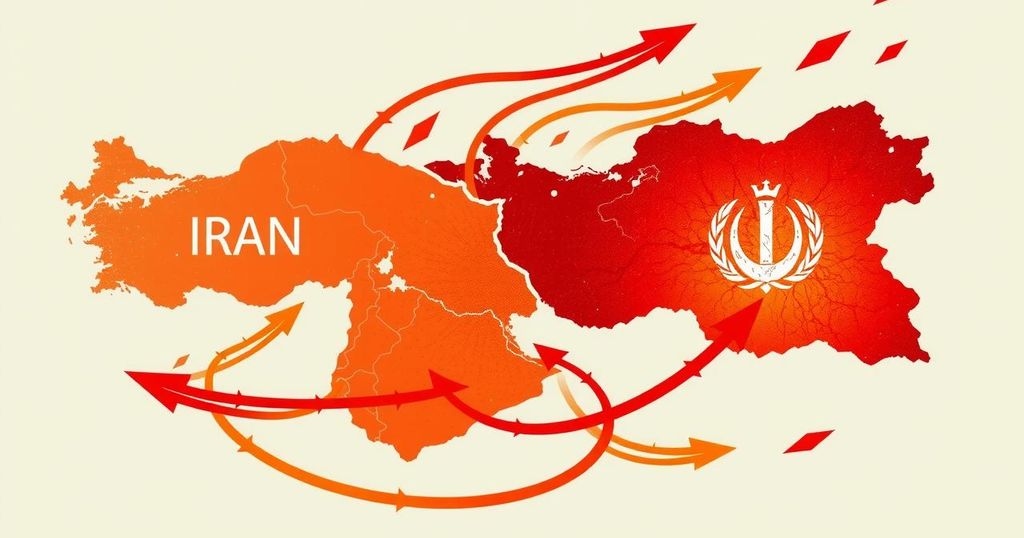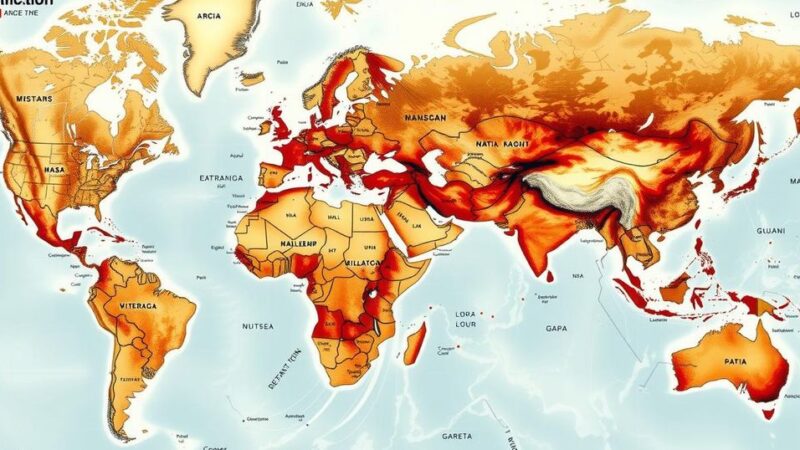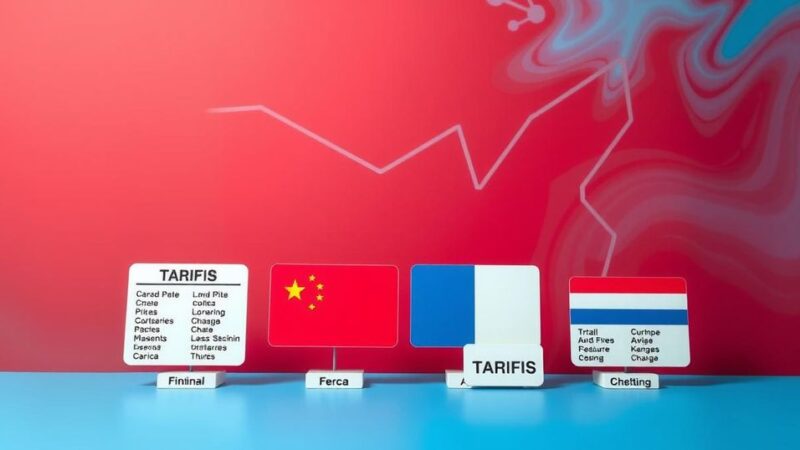The tensions between Turkey and Iran are intensifying over regional influence in Syria and Iraq, catalyzed by recent regional shifts. Turkey asserts it has the upper hand following the Assad regime’s fall, while Iran seeks to counter this narrative and protect its interests. Their rivalry, amidst past agreements and current geopolitical complexities, raises concerns over potential proxy conflicts extending into neighboring areas.
The regional dynamics between Turkey and Iran have been shifting, leading to heightened tensions in Syria and Iraq. Both nations, once managing their rivalry cautiously, now find themselves increasingly at odds, particularly after the fall of Bashar al-Assad’s regime. Recent developments have led to a direct war of words, marking a phase where both sides are vying for greater influence in their respective areas.
The latest conflict arose following Iranian criticism of Turkey’s actions in Syria, particularly after the PKK leader Abdullah Öcalan urged disarmament. In response, Turkish Foreign Minister Hakan Fidan cautioned Iran against interfering in domestic matters, warning them that such interference might have unforeseen consequences. This indicates a precarious balance of power, with Turkey asserting that Iran should be wary of its own vulnerabilities.
Turkey has long viewed Iran’s regional strategies as destabilizing. An agreement made in 2015 between Turkish President Recep Tayyip Erdoğan and Saudi King Salman to unite against Iran’s sectarian policies has not materialized into actionable responses. Historically reliant on Iranian energy, Turkey is now diversifying its sources, likely emboldened by the recent regional realignments that have weakened Iranian influence.
Recent military actions by Israel have contributed to a diminished standing for Iran and its allies in the region. The demise of the Assad regime has resulted in further challenges for Tehran’s influence, while Turkey seeks to leverage this opportunity. Turkish objectives revolve around stabilizing Syria and reinforcing its economic and political relationships, particularly with Baghdad, amid a resurgent independence from Iranian energy dependence.
Iran seeks to counter Turkey’s perception of its waning power. Supreme Leader Ayatollah Khamenei’s advisor, Ali Akbar Velayati, publicly challenged Turkish assertions, indicating Iran’s intent to confront Turkey. Furthermore, Iranian media have threatened repercussions should Turkey support separatist movements within Iran’s borders, suggesting a potential for internal destabilization that could backfire against Turkey.
In response to perceived historical Turkish assertions of dominance, Iranian officials have voiced concerns about Turkey’s aspirations reminiscent of its Ottoman past. Accusations have risen against Turkey regarding funding anti-Iranian elements, revealing deep-seated fears and aspirations for influence expansion in the region.
While Iran’s position in Syria is precarious, its ability to affect Turkish ambitions remains intact. Reports indicate mixed messages from Iranian officials regarding future involvement in Syria, with some rejecting past strategies, while others reaffirm Tehran’s role in Syria’s sovereignty. This ambiguity signals ongoing tensions between Turkish aspirations and Iranian ambitions.
Turkey’s attempts to enhance its energy and economic connections in Iraq face the challenge of Iranian political footholds. The tensions between both nations present risks as Turkey strives to project influence in Baghdad. Despite Turkey’s economic advances, Iran’s entrenched power dynamics complicate these ambitions and sustain regional instability.
The evolving situation indicates that while Iranian officials aspire to de-escalate conflicts, they remain cognizant of Turkey’s maneuverings. Notably, Turkey is positioned to maintain a larger discourse in regional politics, revealing its assertiveness against potential threats from Iran. However, tensions are unlikely to escalate into military confrontation, yet proxy competitions across the region are likely to intensify as both nations control their spheres of influence with caution.
In conclusion, the tensions between Turkey and Iran continue to escalate as both nations navigate a complex regional landscape influenced by shifting power dynamics. With historical grievances and current geopolitical strategies at play, both countries appear poised for an extended rivalry, particularly in Syria and Iraq. While conflict may be avoided, the risk of proxy confrontations remains significant, potentially expanding the rivalry beyond their borders into neighboring regions.
Original Source: www.mei.edu






